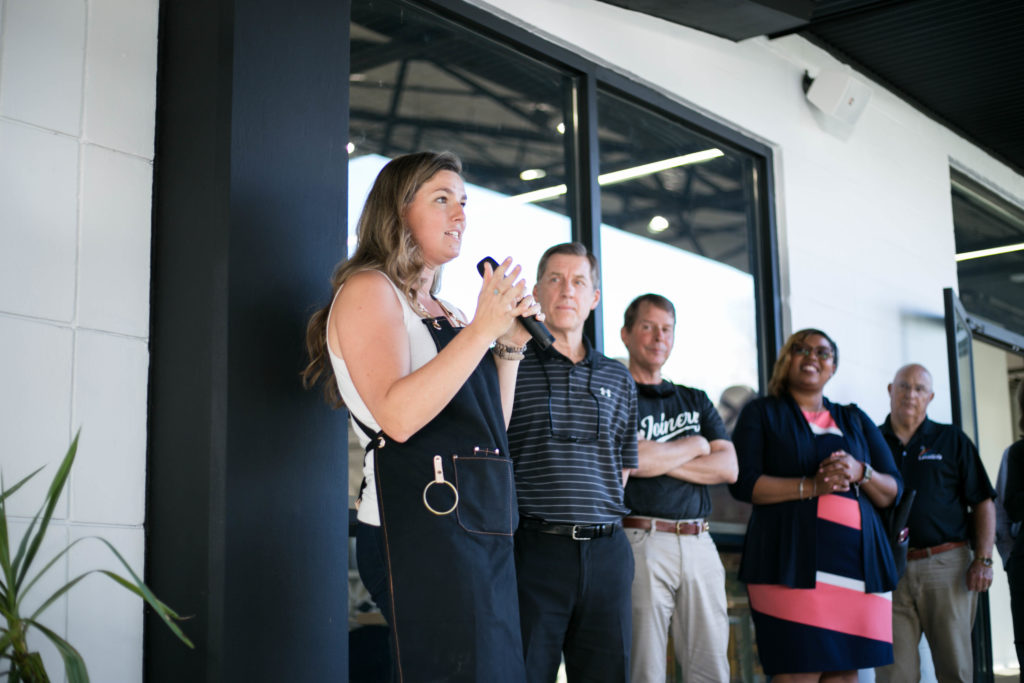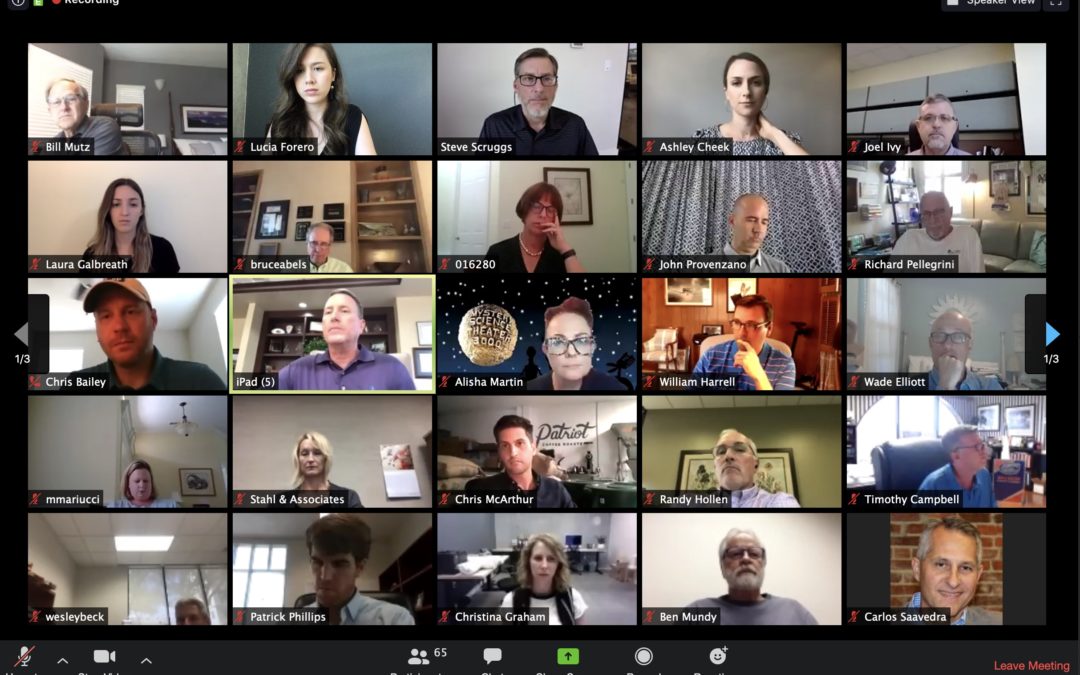By: Steve Scruggs
When we experience a crisis like COVID-19 it reminds us how important it is to have a diversified economy. The following is a list of questions we have been asking ourselves as part of a project we are calling “The Other Side.” The answers to these questions will become the roadmap we will use for our future economic development plan.
ECONOMIC DEVELOPMENT
How might we capitalize on new Economic Development trends on the other side?
E-Commerce & Manufacturing – These industries are literally making and supplying many of the products that everyone in the country so desperately needs.
- How might we help our local companies in these industries expand? How might we recruit additional companies in these sectors to Lakeland?
- In October, you had the foresight to approve an annual fund of $500,000 to primarily incent manufacturing jobs. These are exactly the types of companies and jobs we need to attract to, or incent to expand, in Lakeland. How might we consider implementing this incentive and even consider doubling down on it?
- You also approved a one-time $2 million to incent Catalyst Projects in Downtown Lakeland. Let’s hold that money for 6 months as we re-evaluate our priorities.
Health Care – COVID-19 has revealed how vulnerable the U.S. health care industry is.
- How might we capitalize on our country’s pressure to relocate medical manufacturing, equipment, packaging, distribution and even pharmaceutical production from overseas to the United States?
Office Users, Service Providers & Professional Services – COVID-19 is teaching us that many of us can work from home, at least part-time.
- Prior to COVID-19 less than 4% of our U.S. workforce worked from home half-time or more.
- The longer people work at home during this crisis, the greater rate of adoption in the future.
- Prior to the crisis, surveys showed 80% of employees want to work from home at least some of the time.
- People are getting used to using virtual tools. They are learning to collaborate online.
- By not commuting to work employees are saving money, time and are less stressed.
- Employees at home are closer to their loved ones and have less workplace interruptions.
- Companies could save more money by not having to provide office space for employees.
Small Business & Entrepreneurs – What does is it mean to be a locally owned small business on the other side?
- A 2018 Federal Reserve survey showed only a slight majority of small businesses were profitable (57%) and just under one-quarter of them were operating at a loss. What will these numbers look like post COVID-19?
- How might restaurants survive with forced lower occupancy rates due to social distancing?
- Will it be harder for small business to get bank loans when, theoretically, small business will actually need more capital?
- How might small businesses become “essential” so they can stay open to compete with big boxes who are “essential” in times of crisis?
- Could we create an incentive for local “non-essential” small businesses making Lakeland more competitive and business-friendly?
Tourism – What is the future of tourism, large sporting events, convention centers, arenas and ride-share companies post Covid-19?
- Conventions – COVID-19 will cause companies and their executives to rethink the need for travel to meetings, conferences, etc. What will this mean for local venues and convention properties?
- Arenas – Our local arena has struggled for years to compete with neighboring facilities. How will we be able to compete moving forward?

TALENT RECRUITMENT AND RETENTION
How might we capitalize on new workforce trends on the other side?
College Students
- Majors – Will college students in the future change majors based their ability to get a job in their field? Are Lakeland colleges and universities offering the majors and minors of the future job market?
- Health Care – Will current college students be inspired to serve on the front lines in health care just like some were inspired to serve in the military after 9/11? Is this an opportunity for our local colleges and universities? Can they be the first to market with online health care programming?
- Working from Home – Will college graduates favor companies that offer the option of working from home? Will companies hiring the brightest and the best capitalize on this new trend? Will Lakeland companies adapt quickly and lead?
- Summer Jobs, Internships – Tens of thousands of students will not be offered internships or jobs this Summer. Companies that find a way to offer internships and jobs to recent college graduates will have a unique opportunity to hire the best and the brightest.
Essential vs. Non-Essential
- Non-Essential – Theatres, Gyms, Salons & Spas, Shopping Malls, Sporting and concert venues, many small businesses, restaurants and bars, most non-profits, etc.
- Essential – Healthcare, Grocery Stores, Contractors, Accounting, Manufacturing, etc.
- Will there be an advantage to being an essential or non-essential business on the other side?
- How is our workforce going to respond to be labeled non-essential?
- How is this going to affect talent recruitment and retention?
- Furloughed
- How is our workforce going to respond to being furloughed?
- Are companies that furloughed their employees going to be less attractive places to work on the other side?
- Do you think furloughed employees are going to consider taking a job with an essential business hiring today vs. a non-essential that may or may not bring them back tomorrow?
- Automation
- Some view automation as a job-killer, we see automation as a mandatory capability to deal with a crisis.
- Automation can produce high pay jobs. There will be a need for a workforce who can operate/repair/manage this technology.
- Will COVID-19 drive companies to automate more rapidly?
- Many companies in Lakeland have significantly invested in automation including; general manufacturing, specialty manufacturing, packaging and shipping, finance, distribution, agriculture and healthcare which has given them the opportunity to serve immediate critical needs and even create new verticals.
MIGRATION PATTERNS POST COVID-19
How might we capitalize on a potential change in migration patterns on the other side?
- Will states, counties and cities that experienced low levels of infection become the most attractive communities to relocate to on the other side?
- Tens of thousands of residents from the Northeast have already demonstrated during this crisis that Florida is the place they run to, to escape places like New York.
- In addition to New York, what other states are experiencing high levels of cases?
| USA State | Total Cases |
|---|---|
| USA Total | 980,784 |
| New York | 293,354 |
| New Jersey | 109,038 |
| Massachusetts | 53,348 |
| Illinois | 43,903 |
| Pennsylvania | 42,708 |
| California | 42,688 |
| Michigan | 37,778 |
- What cities are experiencing high levels of cases on the East Coast?
- NYC, Boston, Philadelphia, Atlanta and Miami

How would this migration pattern impact residential growth in Florida and more specifically Lakeland?
- Retirement age adults are high risk when it comes to virus’s like COVID-19. Will Lakeland experience an even greater influx of retirees than in the past?
- Working age populations with children may want to move to real or perceived “safer” places to raise their children. This happened after 9/11. What will happen after COVID-19 and if so, is this an opportunity to recruit skilled labor to our market?
- Millennials may decide to find “essential” jobs and companies that didn’t furlough their employees where they grew up, near their loved ones. Is this an opportunity for Lakeland to experience a boomerang of millennials who grew up in Lakeland?
How would this migration pattern impact Economic Development in Florida and more specifically Lakeland?
- Lakeland may have the opportunity to attract skilled labor and talent from impacted areas.
- Lakeland may have the opportunity to attract “essential” employers that want to find a place they can operate their businesses without interruption that is safe for their employees.
To find a summarized version of our ‘How Might We’ questions click here. Now that you have seen our map, what road do you think we should take? How should we use our resources to get there? What can we do to give our local businesses and economy the best chance for recovery? How can Lakeland be first to market? What do you want the other side to look like? How can the LEDC help us get there?
